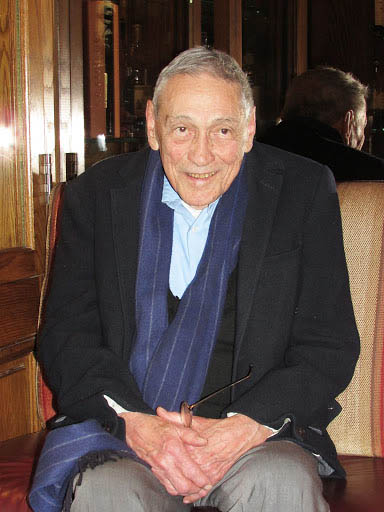Touris, white man, wipin his face,
Met me in Golden Grove market place.
He looked at m’ol’ clothes brown wid stain ,
An soaked right through wid de Portlan rain,
He cas his eye, turn up his nose,
He says, ‘You’re a beggar man, I suppose?’
He says, ‘Boy, get some occupation,
Be of some value to your nation.’
I said, ‘By God and dis big right han
You mus recognize a banana man.
‘Up in de hills, where de streams are cool,
An mullet an janga swim in de pool,
I have ten acres of mountain side,
An a dainty-foot donkey dat I ride,
Four Gros Michel, an four Lacatan,
Some coconut trees, and some hills of yam,
An I pasture on dat very same lan
Five she-goats an a big black ram,
Dat, by God an dis big right han
Is de property of a banana man.
‘I leave m’yard early-mornin time
An set m’foot to de mountain climb,
I ben m’back to de hot-sun toil,
An m’cutlass rings on de stony soil,
Ploughin an weedin, diggin an plantin
Till Massa Sun drop back o John Crow mountain,
Den home again in cool evenin time,
Perhaps whistling dis likkle rhyme,
Praise God an m’big right han
I will live an die a banana man.
[. . .]
‘De bay is calm, an de moon is bright
De hills look black for de sky is light,
Down at de dock is an English ship,
Restin after her ocean trip,
While on de pier is a monstrous hustle,
Tallymen, carriers, all in a bustle,
Wid stems on deir heads in a long black snake
Some singin de songs dat banana men make,
Like, Praise God an dis big right han
I will live an die a banana man.
[. . .]
‘So when you see dese ol clothes brown wid stain,
An soaked right through wid de Portlan rain,
Don’t cas your eye nor turn your nose,
Don’t judge a man by his patchy clothes,
I’m a strong man, a proud man, an I’m free,
Free as dese mountains, free as dis sea,
I know myself, an I know my ways,
An will sing wid pride to de end o my days
Praise God an m’big right han
I will live an die a banana man.’
-Evan Jones
Last week on August 6, the Caribbean nation of Jamaica celebrated its 58th Independence Day. The island broke away from the West Indian Federation in 1962, which led to its collapse. Progressing from that, the country gained independence from Great Britain on August 6.
Since then, the nation created the Jamaica Festival made up of several events running through July and these have always included the arts. Literature has been directly linked to the independence celebrations, and among the features integrated in the festival were the literary prizes which peaked with the award of Gold, Silver and Bronze medals to the best in Poetry, Short Story and Playwriting.
It is, therefore, not out of place to select a poem in order to pay tribute to Jamaica on its independence anniversary. The selected poem is not a recent one; in fact, it belongs to the pre-independence era and does not represent the latest modernist or post-modernist developments in contemporary Jamaican literature. But it solidly represents Jamaica in several ways, rooted in one of the strong traditions of the country economically, industrially, and politically, and in very apposite addition to those, speaks to the development of the literature. It may be regarded as a highly representative specimen of Jamaican poetry.
“The Song of the Banana Man” by Evan Jones was written in 1956 and has never faded as a prominent poem. It has been published in many anthologies and has to be among the most frequently performed Jamaican poems, rivaling the works of Louise Bennett. Jones, who was born in Portland, Jamaica in 1927 and took up residence in England in 1956, was known as a prominent writer in that country, but was known for only two poems. The second one is “The Lament of the Banana Man”, released in 1962, the year of independence.
Yet, he rose quite high in the mainstream English arena as a writer. His main area was film writing in which he produced a string of well-known films and an acclaimed TV series once carried by the BBC. There are high flying names among those who have acted in his works. He earned a BA in English from University of Oxford, a prestigious institution that obviously thought highly of this particular alumnus. They bought his papers, which are now housed in the famous and distinguished Bodleian Library – quite flattering for any writer.
As a single poem, “Song of the Banana Man” has a place among the works that advanced West Indian literature in the 1950s. “Lament of the Banana Man” is much lesser in achievement, but relevant. While the first poem celebrates a number of factors about Jamaica and its poetry, the “Lament” is a less successful sequel. It never gained the celebrity or acclaim and is lower in the hierarchy of quality. But it is very much a poem of exile, extremely important in West Indian literature as a theme and as a factor in the development of a literature most of whose writers were ‘in exile’ overseas (including Jones).
“Song of the Banana Man” is drawn from biography since it describes an environment in which Jones grew up as a boy. His father was a farmer in the hilly Portland countryside, and he went to Munro College, a prestigious boarding school for boys, also located in a rural setting. The poem belongs to the developing poetry of nationalism that has its origins in the 1930s, a movement in existence long before independence. But it includes the period during which Jamaica held its first election under universal adult suffrage in 1944. This is regarded as the long run-up to independence with roots even earlier – in the industrial unrests and the rise of working-class movements in the 1930s.
This was a rich history in the growth of the literature, and of the arts in a wider sense. It was particularly reflected in the fine arts – in sculpture led by the works of Edna Manley, creator of the groundbreaking “Negro Aroused”, said to have been inspired by a phrase used in a speech by Marcus Garvey. The same rising waves propelled sculptor Alvin Marriott who created “Banana Man” (1955), a striking piece of realism at a time when the strength of the Black worker, the industry of the farmer, the waterfront worker and the nobility of the Black race were celebrated. It also included struggle, bearing in mind the riots of the late thirties and the rise of trade unions.
In literature, there was prevailing nationalism, consciousness, and liberation among such novelists as V S Reid with New Day (1949), poet and playwright Una Marson, and little known but important minor poet Vera Bell who wrote “Ancestor on the Auction Block”. Jones’s power-driven celebration of the banana farmer takes in a number of factors. There is pride in the countryside, in the agricultural occupation and respect for the peasantry. Jamaica is still a major exporter of bananas, and there is a sense of the banana man’s contribution to industry and national economy in the description of the English ship, the docks, and the busy waterfront work. The poem exploits irony, since the tourist mistakes the poem’s narrator (persona) for “a beggar man” who was of no “value to his nation”. The physical strength symbolised by “dis big right han” is in line with the masculinity inherent in Manley’s and Marriott’s works of sculpture and the poetry of Philip Sherlock. There is the acclamation of self-reliance and independence, transferred from man to developing nation.
The poem is stylistically a creature of its time. It was not easy to get a reliable copy of the original text of the poem, since so many of those available are corrupted. I suppose a visit to the Bodleian will find a correct original version. Like Reid’s New Day, it attempts a narrative in Jamaican Creole (Patois). This is not perfected as it is still dominated by Standard English syntax. Jones achieved the rhythm of the patois speech that escaped more advanced writers like Claude McKay and Marson, although his creole is repeatedly Anglicised. But this is a mark of the time and a scribal issue that it took Louise Bennett to conquer. Like her, however, he made a success of heroic couplets in a dramatic narrative monologue.
“The Song of the Banana Man” then, is in many ways a representative Jamaican poem. While it is the work of a man whose poetic renown rested on a single poem, it is a poem that has expanded the poetic renown of a nation. I therefore offer to Jamaica, a celebrated example of its own work on the occasion of its 58th birthday. To put it in the words of another poet, Edward Baugh, “And this, I insist, is a tribute”.











